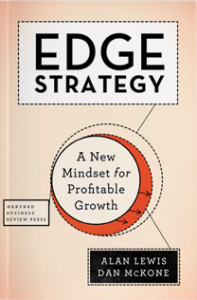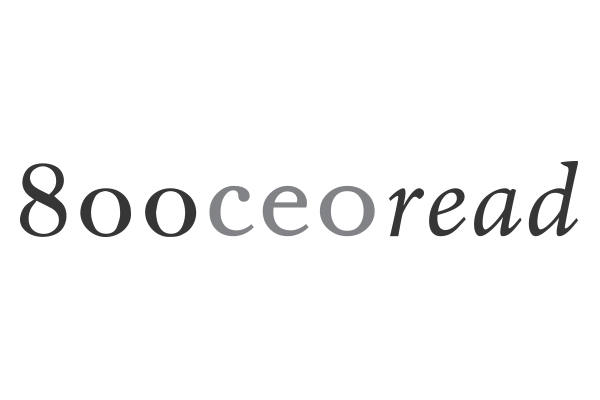Face It, Your Customers Want More than Just Your Product; How Listening to Their True Passions Can Spur Growth
A Sushi Bar and Espresso Stand May Be at the “Edge” of the Grocery Business, but They Drive Profits at Whole Foods. People Don’t Just Want Groceries; They Want Dinner
BOSTON, MA (January 27, 2016) — Here’s a radical prescription for companies caught in excruciating trench warfare battling over tiny slivers of market share: Stop thinking so much about your products.
That’s one of the key takeaways from in Edge Strategy: A New Mindset for Profitable Growth (Harvard Business Review Press, January 2016), a new book by Alan Lewis and Dan McKone who advise major companies at L.E.K. Consulting.
They’ve found that most companies already have the customer relationships and capabilities to grow new high-margin revenue sources. But those opportunities lie at the periphery—or edge—of their current operation.
Most companies obsessively try to optimize their existing product lines, cutting costs and trying to win a few more points of market share. When those efforts inevitably reach the point of diminishing returns, they leap into entirely new businesses, often through acquisitions that turn out to be costly and distracting mistakes.
Edge strategies are close enough to a company’s existing activities to give it an advantage yet new enough to have significant upside, Lewis and McKone show.
The book looks closely at how Whole Foods has installed espresso bars, pizza ovens, barbeque and even seating area in many of its stores, far more investment in prepared foods than the typical supermarket deli counter.
“The company started out on a mission to bring natural organic groceries to the world,” says McKone. “Then it said, why don’t we walk one step further on the journey and not only fill customers’ pantries but also fill their stomachs.”
Since cooking food lies at the edge of selling groceries, Whole Foods was able to expand with lower costs and lower risk than anyone who wanted to start a natural foods restaurant.
“They already have the customers, locations, supply chain and a high quality product that people want,” McKone says. “So, by opening up prepared foods as a business, they have got another 10 percent or 15 percent revenue that generates nearly half the company’s profit.
Companies can find lucrative opportunities by looking closely at their customers’ journeys—their paths before and after they use the company’s product and the objectives they are trying to achieve, Lewis and McKone say.
They challenge executives to ask themselves this question: “What mission is my customer ultimately hoping to accomplish with my product, and would he or she give me permission to help more toward this end?”
Such questions would lead airlines to consider services that go beyond simply transporting a person from one city to another, they write.
“The preoccupied businesswoman on her way to make the big sale is certainly going to be in a different mindset than the retiree sitting to her left returning home to his spouse, or the college student on her right on his way to spring break,” Lewis says. “They will all have different pain points and very different needs leading up to, and exiting, the airline’s care.”
Thinking broadly about customer journeys is fruitful in many kinds of industries. Colfax, one of the world’s leading manufacturers of welding equipment, understands its customers have needs that go far beyond a device to join two piece of metal. Thus it has developed a wide array of very profitable services that range from welding education and product training to engineering consulting.
Edge Strategy shows executives how to look at their companies’ existing capabilities to find product enhancements that increase revenue, build services that broaden their relationships with customers, and even create businesses that capitalize on their existing assets to serve new customers. By developing an “edge mindset,” companies using this approach can consistently capture all of the return from the risks they have already taken.
For more information, or to schedule an interview with Alan Lewis or Dan McKone, contact Katarina Wenk-Bodenmiller of Sommerfield Communications at +1 (212) 255-8386 or katarina@sommerfield.com.
About L.E.K. Consulting:
L.E.K. Consulting is a global management consulting firm that uses deep industry expertise and rigorous analysis to help business leaders achieve practical results with real impact. We are uncompromising in our approach to helping clients consistently make better decisions, deliver improved business performance and create greater shareholder returns. The firm advises and supports global companies that are leaders in their industries — including the largest private and public sector organizations, private equity firms and emerging entrepreneurial businesses. Founded more than 30 years ago, L.E.K. employs more than 1,000 professionals across the Americas, Asia-Pacific and Europe. For more information, go to www.lek.com.
Edge Strategy® is a registered trademark of L.E.K. Consulting LLC





